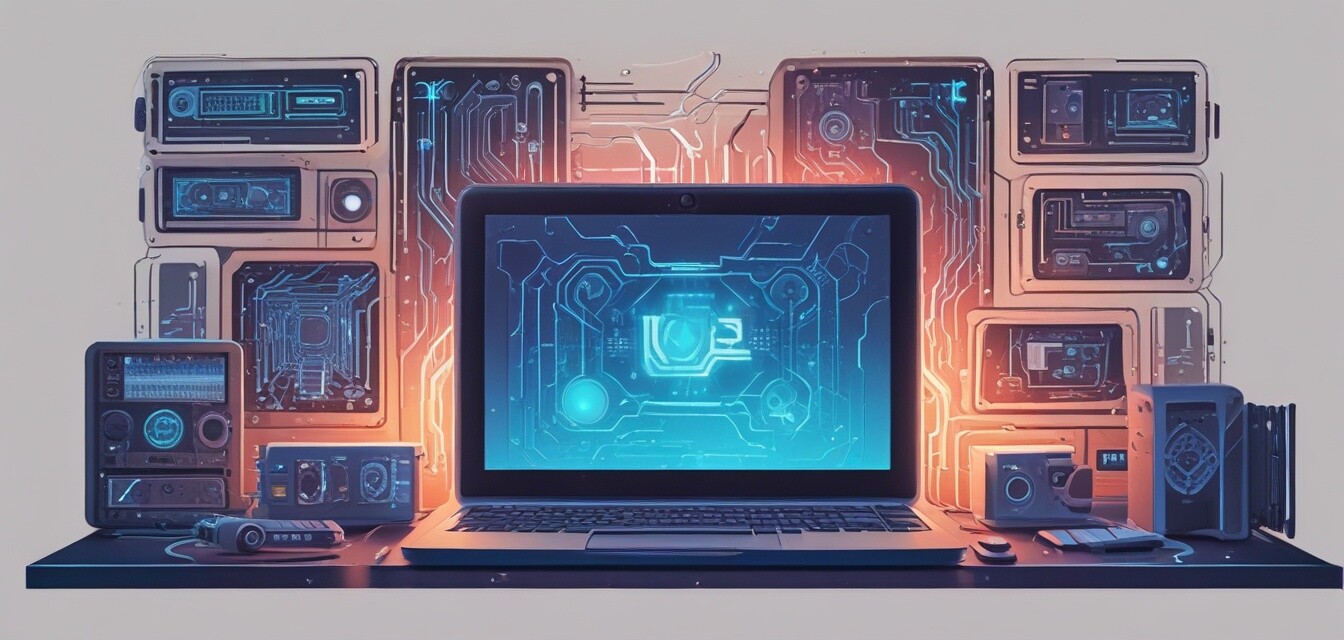
What the future holds for laptop AI integrations
Key Takeaways
- AI is set to enhance user experience, productivity, and security in laptops.
- Integration of AI will drive innovations in performance optimization.
- Consumers can expect smarter, more intuitive interactions with their devices.
- AI technologies will shape the future of both hardware and software ecosystems.
- Continuous learning from user behavior will further customize laptop functionalities.
The world of technology is evolving rapidly, with artificial intelligence (AI) playing a pivotal role in shaping user experiences. As we embark on an era where laptops become more than just computing devices, the integration of AI technologies promises exciting advancements. In this article, we’ll explore predictions on how AI will further enhance laptop functionalities and refine user interactions, making our computing experiences more seamless and efficient.
The Evolution of AI in Laptops
Over the past few years, AI has vacationed from the realms of science fiction to become a tangible element within our laptops. Many current systems already utilize AI for various purposes, from voice recognition software to predictive typing aids. Here’s a brief overview of how AI has evolved in terms of laptop technology:
| Year | AI Integration | Impact |
|---|---|---|
| 2015 | Initial voice recognition capabilities | Enhanced accessibility for users with disabilities |
| 2018 | AI-driven performance optimization | Improved battery life and device efficiency |
| 2021 | Smart assistants | Increased productivity and hands-free operations |
| 2023 | Advanced security features powered by AI | Enhanced user data protection and detection of anomalies |
Predictions for Future AI Integrations in Laptops
As we look ahead, several trends are likely to shape the future landscape of AI in laptops:
- Enhanced User Interfaces: AI will create more intuitive interfaces that adapt based on user preferences and behavior. Expect conversational interfaces and context-aware features.
- Automated Workflow Management: The use of AI to assist with task management will help streamline workflows, improving overall productivity.
- Personalized Experiences: AI will analyze user data to offer tailored recommendations, from app usage to document organization.
- Predictive Analytics: Laptops will analyze user habits over time to predict future actions, providing proactive assistance.
- Security Enhancements: With AI, laptops will incorporate self-learning algorithms to detect threats and respond to security breaches in real-time.
How AI Can Transform User Interaction
AI isn't just about back-end processes; it significantly enhances user interaction. Here’s how:
- Smart assistants will assist with scheduling, reminders, and even recreational activities based on user habits.
- Voice commands will become so sophisticated that they could eventually replace traditional input methods, even for complex tasks.
- Augmented reality features will allow users to visualize complex data through sophisticated assistants, providing a better understanding of content.
Potential Challenges of AI Integration
Despite the numerous advantages, integrating AI into laptops does present some challenges:
Pros
- Enhanced productivity through automation and smart interfaces.
- Improved security protocols driven by real-time analysis.
- Better personalization of user experiences based on machine learning.
Cons
- Potential over-dependence on technology can lead to diminished manual skills.
- Privacy concerns with data collection and user monitoring.
- Cost implications of newer machines equipped with advanced AI capabilities.
The Road Ahead: AI and Laptop Manufacturing
As laptop manufacturers continue to innovate, we can expect to see AI technologies influencing hardware design as well. This will likely include:
- Smart thermal management systems that adapt cooling based on workload and usage to maintain peak performance.
- Integrated AI processors that enhance computing capabilities specifically for machine learning tasks.
- Improved battery technologies that leverage AI to optimize charge cycles and prolong battery life.
Conclusion
The integration of AI in laptops is not a mere trend but a transformation that will redefine how we interact with our devices. From optimizing performance to crafting personalized environments, the future is bright. Users can look forward to experiencing smarter, more efficient laptops tailored to their needs. Staying informed about these innovations ensures consumers make the best choices for their technology needs. For more insights on emerging trends in PCs and laptops, check out our News and Trends section.
With AI continuing its upward trajectory, the question remains: how will you leverage these changes in your daily computing tasks? The possibilities are endless!